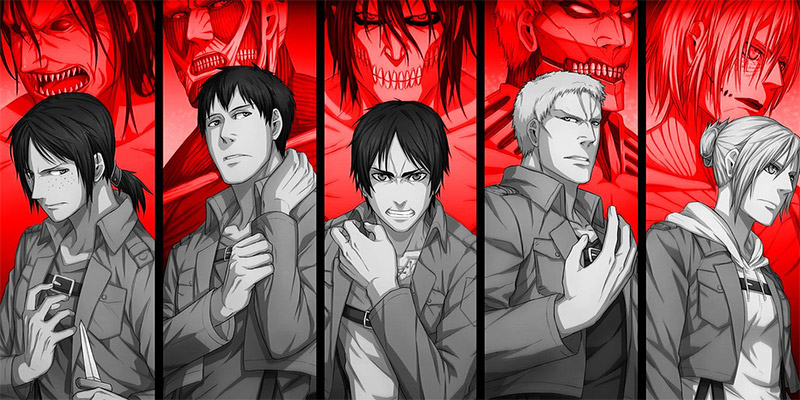Last Updated on July 27, 2023
Welcome to our exploration of the fascinating world of mythology, where we delve into the enigmatic realm of the Titans. These ancient beings, shrouded in mystery and power, hold a significant place in Greek mythology. In this article, we will embark on a journey to uncover the origins of the Titans, their epic battle against the Olympians, and their complex relationships with the younger gods. We will also delve into their supernatural abilities, their imprisonment in Tartarus, and their enduring influence on Greek culture. Join us as we unravel the captivating tale of the Titans and their lasting legacy in mythology.
Origins of the Titans: Discussing their creation and parentage
The Titans, in Greek mythology, were a powerful race of divine beings who ruled during the Golden Age. They were the children of the primordial deities, Gaia (the Earth) and Uranus (the Sky). The Titans were born from the union of these two powerful forces, and they were the first generation of gods in Greek mythology.
- The Titans were born from the union of Gaia and Uranus
- They were the first generation of gods in Greek mythology
- Their parentage made them incredibly powerful and influential
The Titans were known for their immense strength and their connection to the natural world. They were the rulers of the universe before the Olympian gods, and their reign was characterized by peace and prosperity.
- The Titans were known for their immense strength
- They were the rulers of the universe before the Olympian gods
- Their reign was characterized by peace and prosperity
However, their power and influence eventually led to a great conflict known as the Titanomachy, in which the Titans were overthrown by the younger gods, the Olympians.
Titanomachy: Exploring the epic battle between the Titans and the Olympians
The Titanomachy is a legendary battle that took place in Greek mythology between the Titans and the Olympians. This epic clash was a pivotal event that determined the fate of the gods and the course of the universe. The Titanomachy was a war of immense proportions, with the Titans, led by their powerful leader Cronus, challenging the authority of the Olympians, led by Zeus.
The battle lasted for ten years and was characterized by intense violence and chaos. The Titans, with their immense strength and supernatural abilities, posed a formidable threat to the Olympians. However, the Olympians, with their strategic prowess and divine powers, ultimately emerged victorious.
The Titanomachy had far-reaching consequences, as it marked the end of the reign of the Titans and the establishment of the Olympian gods as the new rulers of the cosmos. This epic conflict symbolized the triumph of order over chaos and the emergence of a new era in Greek mythology.
Titan Gods and Goddesses
In Greek mythology, the Titans were a group of powerful deities who ruled the world before the Olympians. They were the children of the primordial deities, Gaia (the Earth) and Uranus (the Sky). The Titans were divided into two generations, the older Titans and the younger Titans.
The older Titans included Cronus, the leader of the Titans, and his siblings Oceanus, Hyperion, Coeus, and Crius. Cronus was known as the god of time and the harvest, while Oceanus was the god of the sea. Hyperion was associated with the sun, Coeus with intellect, and Crius with the constellations.
The younger Titans were the children of Cronus and his sister Rhea. They included Zeus, Poseidon, Hades, Hera, Demeter, and Hestia. Zeus, the most powerful of the Titans, became the king of the gods and the ruler of Mount Olympus. Poseidon became the god of the sea, Hades the god of the underworld, Hera the goddess of marriage, Demeter the goddess of agriculture, and Hestia the goddess of the hearth.
Each of the Titans had their own domain and responsibilities. They played a significant role in the Greek pantheon and were revered by the ancient Greeks for their power and influence.
Powers and Abilities
The Titans, as powerful and ancient beings, possess a wide range of supernatural abilities. These abilities set them apart from both mortals and the younger gods, and contribute to their status as formidable beings in Greek mythology. Some of the powers and abilities associated with the Titans include:
- Immortality: Like the Olympians, the Titans are immortal beings who do not age or die naturally.
- Superhuman Strength: The Titans are known for their immense physical strength, which surpasses that of both mortals and the Olympians.
- Shape-shifting: Titans have the ability to change their form, allowing them to take on different appearances and deceive others.
- Control over the Elements: Many Titans have dominion over specific elements, such as earth, water, or fire, and can manipulate them to their advantage.
- Divine Knowledge: The Titans possess great wisdom and knowledge, often surpassing that of the younger gods.
These powers and abilities contribute to the Titans’ status as formidable beings in Greek mythology, and play a significant role in their interactions with both mortals and the Olympians.
Relationships with the Olympians
The relationships between the Titans and the Olympians were complex and often tumultuous. Here are some key points to understand:
- The Titans were the older generation of gods, while the Olympians were the younger generation.
- There was a power struggle between the Titans and the Olympians, as the younger gods sought to overthrow their predecessors and establish their own rule.
- Some Titans sided with the Olympians during the Titanomachy, while others remained loyal to their own kind.
- After the Olympians emerged victorious, they banished the Titans to the depths of Tartarus, a dark and gloomy underworld.
- Despite their defeat, the Titans still held some influence over the Olympians. For example, Zeus, the king of the gods, was the son of the Titan Cronus.
- Some Titans, such as Prometheus and Atlas, played important roles in Greek mythology and had interactions with the Olympians.
- The relationships between the Titans and the Olympians were often marked by conflict and tension, but there were also instances of cooperation and alliances.
Overall, the relationships between the Titans and the Olympians were a reflection of the complex dynamics between the older and younger generations of gods in Greek mythology.
After their defeat in the Titanomachy, the Titans faced a grim fate. They were imprisoned in Tartarus, the deepest and darkest pit of the Underworld. Tartarus was a place of eternal torment and suffering, reserved for the most wicked and powerful beings. The Titans were bound in chains and locked away in this desolate realm, where they would remain for all eternity.
Their imprisonment in Tartarus served as a warning to any who dared challenge the authority of the Olympians. It was a reminder of the consequences of rebellion and the ultimate power of the gods. The Titans, once mighty rulers of the cosmos, were now reduced to mere prisoners, forever separated from the world they once ruled.
Despite their imprisonment, the Titans continued to hold a significant place in Greek mythology. Their story served as a cautionary tale and a reminder of the cyclical nature of power. The Titans’ legacy endured through their portrayal in art, literature, and religion, where they continued to be depicted as formidable and awe-inspiring beings.
Influence on Greek Culture
The Titans, despite their defeat in the Titanomachy, have left an indelible mark on Greek culture. Their influence can be seen in various aspects of art, literature, and religion.
In art, the Titans are often depicted in sculptures and paintings, showcasing their grandeur and power. These representations serve as a reminder of their role in Greek mythology and their significance in shaping the world.
Literature also bears the imprint of the Titans, with many ancient Greek texts referencing their stories and exploits. The Titans’ struggles and conflicts have inspired countless epic poems and plays, captivating audiences with their larger-than-life narratives.
Religion, too, has been deeply impacted by the Titans. Their existence and subsequent defeat by the Olympians have shaped the beliefs and rituals of the ancient Greeks. The Titans serve as a cautionary tale, reminding worshippers of the consequences of challenging the gods.
The enduring legacy of the Titans can also be seen in modern popular culture. From movies and television shows to video games and comics, the Titans continue to captivate audiences with their mythical allure and epic battles.
In conclusion, the Titans’ influence on Greek culture is undeniable. Their presence in art, literature, religion, and popular culture ensures that their stories and legacy will continue to be celebrated and remembered for generations to come.
Titans in Popular Culture
The Titans have had a significant impact on popular culture, with their portrayal in modern media and entertainment. They have been featured in various forms, including movies, television shows, video games, and literature.
One popular example of the Titans in modern media is the film “Clash of the Titans,” which was released in 2010. The movie depicts the epic battle between the Titans and the Olympians, with a focus on the hero Perseus. The film showcases the Titans’ immense power and their role in Greek mythology.
Another notable portrayal of the Titans can be found in the popular video game series “God of War.” The game follows the protagonist Kratos as he battles against various mythological creatures, including the Titans. The game’s depiction of the Titans is both awe-inspiring and terrifying, capturing their immense size and strength.
Furthermore, the Titans have also been featured in numerous books and novels, often as central characters or as part of the mythology backdrop. Their complex relationships with the Olympians and their role in the Titanomachy make them compelling figures for authors to explore.
In conclusion, the Titans continue to captivate audiences in popular culture, with their larger-than-life presence and their role in Greek mythology. Their portrayal in modern media and entertainment serves to keep their legacy alive and allows new generations to discover and appreciate their significance.
Conclusion: The Enduring Legacy of the Titans
Throughout this exploration of the Titans in Greek mythology, it becomes evident that these ancient beings hold a significant place in the pantheon of gods and goddesses. Their creation, parentage, and epic battle with the Olympians showcase their power and influence. The major Titans, with their unique domains and supernatural abilities, further emphasize their importance in the Greek mythological world.
The complex relationships between the Titans and the younger gods reveal a dynamic interplay of power and hierarchy. Despite their defeat and subsequent imprisonment in Tartarus, the Titans continue to exert their influence on Greek culture. Their lasting impact can be seen in various forms of art, literature, and religion.
Moreover, the portrayal of Titans in modern media and entertainment demonstrates their enduring legacy. From movies to video games, the Titans continue to captivate audiences and inspire awe. Their larger-than-life personas and mythical abilities continue to fascinate and intrigue people of all ages.
In conclusion, the Titans are not merely characters from ancient mythology; they are symbols of power, strength, and the eternal struggle between order and chaos. Their significance in Greek mythology and their enduring legacy make them an integral part of our cultural heritage.Discover the fascinating world of the Titans in Greek mythology, their battles, powers, and lasting impact on culture.
About The Author

Alison Sowle is the typical tv guru. With a social media evangelist background, she knows how to get her message out there. However, she's also an introvert at heart and loves nothing more than writing for hours on end. She's a passionate creator who takes great joy in learning about new cultures - especially when it comes to beer!

